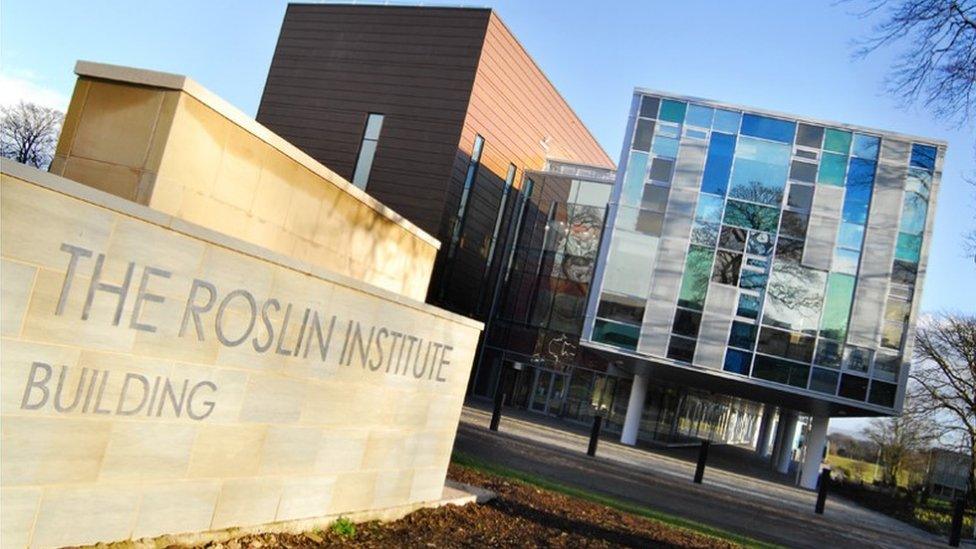Roslin Institute awarded £29m for infectious diseases work
- Published

Scientists at the University of Edinburgh are to receive £29m from the UK government for work to help control infectious diseases such as bird flu.
Business Secretary Greg Clark announced that the funding would go to the Roslin Institute.
It is famous for creating Dolly the sheep - the world's first animal cloned from an adult cell - in 1996.
The money is part of a £319m funding commitment for the bioscience sector over the next five years.
Mr Clark said science, research and innovation were "at the heart of" the UK government's industrial strategy.
He added: "The Roslin Institute is a great example of Scotland's world-class bioscience sector and exactly the sort of project our industrial strategy will support."
Prof Sir Timothy O'Shea, principal and vice-chancellor of the university, said: "The institute plays a pivotal role in the university's mission to tackle the many pressing issues in animal health and welfare, including those which have implications for human health and sustainability of animals in the food chain."
Scottish Secretary David Mundell said: "The investment of £29m of UK government funding for the Roslin Institute underpins our ambitious Industrial Strategy, as we ensure that innovative Scottish industries such as biosciences lead the way in research and development on a global scale."